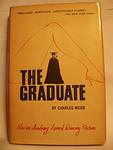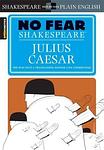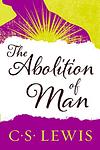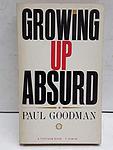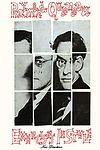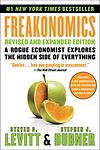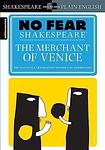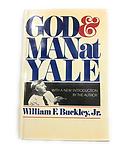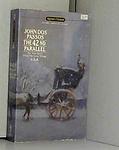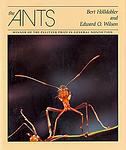The Greatest "Education" Books of All Time
Click to learn how this list is calculated.
This list represents a comprehensive and trusted collection of the greatest books. Developed through a specialized algorithm, it brings together 300 'best of' book lists to form a definitive guide to the world's most acclaimed books. For those interested in how these books are chosen, additional details can be found on the rankings page.
Genres
The "Education" category for books encompasses a wide range of literature that aims to impart knowledge, skills, and values to readers. These books can cover various subjects, including science, history, literature, and mathematics, among others. They can be textbooks, reference books, or instructional manuals, and can be written for different age groups, from children to adults. The goal of education books is to provide readers with a deeper understanding of a particular subject or skill, and to help them develop critical thinking, problem-solving, and analytical skills. Overall, the "Education" category is an essential resource for anyone seeking to expand their knowledge and improve their abilities.
Countries
Date Range
Reading Statistics
Click the button below to see how many of these books you've read!
Download
If you're interested in downloading this list as a CSV file for use in a spreadsheet application, you can easily do so by clicking the button below. Please note that to ensure a manageable file size and faster download, the CSV will include details for only the first 500 books.
Download-
26. The Graduate by Charles Webb
A recent college graduate, unsure of his future, begins an affair with the wife of his father's business partner. He later falls in love with her daughter, leading to a series of complicated and dramatic events. The narrative explores themes of disillusionment, rebellion, and the societal pressures faced by young adults.
-
27. Julius Caesar by William Shakespeare
This classic play dramatizes the political and personal machinations surrounding the assassination of a powerful leader. The narrative follows the conspirators' plot, their execution of the plan, and the resulting chaos and war. The themes of ambition, loyalty, and the struggle for power are explored through complex character interactions and memorable soliloquies. The play also examines the consequences of political violence and the unpredictable nature of history.
-
28. The Resistible Rise of Arturo Ui by Bertolt Brecht
"The Resistible Rise of Arturo Ui" is a satirical play that uses the rise of a fictional 1930s Chicago mobster, Arturo Ui, to parallel the rise of Adolf Hitler in Nazi Germany. The narrative is a critique of those who allowed Hitler to come to power, emphasizing that his rise was indeed resistible. The play explores themes of power, corruption, manipulation, and the dangers of complacency, showcasing the destructive potential of unchecked ambition and the failure of society to prevent the ascent of dangerous individuals.
-
29. The Abolition of Man by C. S. Lewis
This philosophical book explores the concepts of objective value and natural law, arguing that these are essential for moral reasoning. The author criticizes modern education for producing "men without chests," by which he means individuals who deny the importance of moral absolutes. He suggests that this could lead to the "abolition of man" as we traditionally understand him, replacing moral individuals with conditioned responses. The book also discusses the dangers of scientific advancement without moral considerations.
-
30. The Road from Coorain by Jill Ker Conway
"The Road from Coorain" is a memoir that chronicles the author's journey from her childhood on a remote sheep station in Australia, through her adolescence in war-ravaged Sydney, and finally, to her departure for America. The narrative explores themes of self-discovery, gender roles, and the power of education while providing a vivid portrayal of life in the Australian outback. The memoir also delves into the author's complex relationship with her mother and the impact of her father's death on their family.
-
31. The Cement Garden by Ian McEwan
The story revolves around four siblings who are left to fend for themselves after the untimely death of both their parents. The death of their mother, the second parent to die, forces them to hide her body in the basement to avoid being separated by social services. The siblings create their own dystopian world within the confines of their home, leading to a disturbing exploration of their relationships, particularly between the two oldest siblings, as they grapple with the loss, isolation, and burgeoning adolescence.
-
32. Areopagitica by John Milton
"Areopagitica" is a powerful 17th-century polemic against censorship and a passionate defense of the freedom of speech and expression. The author argues against the Licensing Order of 1643, which allowed the British government to censor literature and other forms of expression. He asserts that censorship is a form of tyranny and that in a true republic, freedom of thought and discussion should be promoted, not suppressed. The author also contends that exposure to a wide range of viewpoints, including those that may be false or harmful, is necessary for intellectual and moral growth.
-
33. Growing Up Absurd by Paul Goodman
"Growing Up Absurd" is a sociopolitical critique that explores the struggles of growing up in a society where the traditional routes to manhood – work, family, and citizenship – are increasingly invalidated. The author argues that this societal structure leads to widespread disaffection, mental illness, and juvenile delinquency among young people. He offers a profound analysis of contemporary culture and its effects on youth, also providing suggestions for societal change to address these issues.
-
34. Like Life by Lorrie Moore
"Like Life" is a collection of short stories that explore the nuances of everyday life, delving into the complexities of relationships, love, and loss. The narratives are filled with characters grappling with their past, struggling with their present, and uncertain about their future. The author uses humor and poignant observation to highlight the beauty, pain, and absurdity of human existence, painting a vivid picture of life's many contradictions and ironies.
-
35. There Are No Children Here by Alex Kotlowitz
The book follows the lives of two young African-American brothers growing up in a public housing complex in Chicago during the 1980s. The narrative portrays their daily struggles with poverty, violence, and the drug trade, while also highlighting their dreams and hopes for a better future. The book provides an intimate and heartbreaking look at the harsh realities of inner-city life, systemic racism, and the failure of public institutions to support vulnerable communities.
-
36. Exercises in Style by Raymond Queneau
This unique book tells the same simple story 99 different ways, each in a different style, voice, or literary form. The narrative is about a man who sees the same stranger twice in one day - once on a bus and later in front of a train station. The book serves as an exploration of the endless possibilities of language and style, highlighting the creativity and versatility of storytelling.
-
37. Bohemian Lights by Ramón del Valle-Inclán
"Bohemian Lights" is a novel set in early 20th century Madrid, Spain, featuring a group of bohemian artists and intellectuals as they navigate poverty, passion, and the pursuit of their crafts. The narrative captures their struggles and triumphs, the vibrant and decadent world they inhabit, and their unyielding commitment to their artistic ideals. The novel offers a vivid portrayal of bohemian life, with its blend of joy, despair, and relentless creative energy.
-
38. Freakonomics by Steven D. Levitt, Stephen J. Dubner
This book explores the hidden side of everything, debunking conventional wisdom and revealing surprising connections between seemingly unrelated things. It uses economic theories to explain social phenomena such as the decrease in crime rates in the 1990s, the impact of a person's name on their life outcomes, and the inner workings of drug gangs. By using data and statistics, it challenges the way people think about the world and encourages them to question the accepted truths in society.
-
39. The Merchant of Venice by William Shakespeare
This classic play follows the story of a merchant in Venice who is in dire financial straits and borrows money from a Jewish moneylender, promising a pound of his own flesh as collateral. When he is unable to repay the debt, the moneylender demands his due, leading to a court case and moral dilemma about mercy and justice. Meanwhile, the moneylender's daughter elopes with a Christian, further complicating the relationships between characters. The narrative explores themes of prejudice, love, and the law.
-
40. God and Man at Yale by William F. Buckley, Jr
This book is a critique of the author's alma mater, Yale University, arguing that the institution had strayed from its original mission. The author claims that the university was promoting atheism and socialism, instead of fostering intellectual freedom and individualism. He criticizes the faculty for allegedly pushing their own political beliefs onto students, and calls for alumni to take a more active role in the oversight of their universities.
-
41. Patterns of Childhood by Christa Wolf
"Patterns of Childhood" is a semi-autobiographical novel that explores a woman's struggle to reconcile her past as a member of the Hitler Youth in Nazi Germany with her present as a writer in East Germany. The protagonist uses her memories, dreams, and conversations with her brother to confront her guilt and shame over her involvement in the Nazi regime. The narrative shifts between past and present, creating a complex and layered exploration of guilt, memory, and the process of coming to terms with a traumatic past.
-
42. Hunger of Memory by Richard Rodriguez
"Hunger of Memory" is a memoir that explores the complexities of assimilation and cultural identity. The author recounts his journey as a child of Mexican immigrants growing up in America, detailing his struggles to balance his Mexican heritage with his American surroundings. From learning English in a Roman Catholic school to earning a PhD from an Ivy League university, the author grapples with feelings of alienation and the loss of his private identity, prompting a deep examination of what it means to be an "American."
-
43. The 42nd Parallel by John Dos Passos
"The 42nd Parallel" is a novel that explores the lives of several characters in the early 20th century United States. The narrative intertwines the stories of five protagonists as they navigate through various historical events and social changes such as labor strikes, World War I, and the Mexican Revolution. The book is notable for its experimental style, which includes the use of "Newsreel" and "Camera Eye" sections that incorporate newspaper clippings, song lyrics, and stream-of-consciousness writing to reflect the chaotic and rapidly changing times.
-
44. The Closing of the American Mind by Allan Bloom
The book is a critique of the contemporary American educational system, particularly in universities. The author argues that the rise of relativism and the decline of the humanities have led to a crisis in American education, with students becoming less able to think critically and more prone to moral and intellectual confusion. The book also discusses the impact of popular culture and political movements on education, and argues for a return to a more traditional, classical education.
-
45. Common Ground by J. Anthony Lukas
"Common Ground" is a non-fiction book that provides an in-depth examination of racial tensions in Boston, Massachusetts during the 1960s and 1970s, primarily focusing on the controversial issue of court-ordered busing to integrate public schools. The narrative follows three families - one African-American, one Irish-American, and one Yankee - to depict the effects of these tensions on the city's different communities. The book also explores the historical, political, and social context of these events, offering a comprehensive analysis of a critical period in American history.
-
46. Whatever by Michel Houellebecq
"Whatever" is a satirical novel that explores the life of a depressed and disillusioned computer programmer working for a software company in Paris. The protagonist's life is characterized by his cynicism and indifference towards his job, his failed relationships, and society at large. His only relief comes from his philosophical musings about life and the human condition. The novel is a bleak critique of modern society and the isolation and alienation brought about by technology and capitalism.
-
47. The Ants by E. O. Wilson, Bert Hölldobler
"The Ants" is a comprehensive exploration of the biology, evolution, and behavior of ants. The book covers a wide range of topics, including the ants' origin and classification, their morphology and physiology, their communication and social organization, and their ecology. It also delves into the complex societies and intricate behaviors of these creatures, providing a detailed insight into their world. The authors use a combination of narrative and scientific explanations to make the subject accessible to both general readers and specialists.
-
48. The Montessori Method by Maria Montessori
The book provides an in-depth exploration of the educational method developed by the author for teaching children. It emphasizes the importance of self-directed activity, hands-on learning, and collaborative play in child development. The book also discusses the author's philosophy of observing children in a "prepared environment" where they have access to materials and experiences to aid their learning. The method encourages children to make creative choices in their learning, while the teacher guides the process. The book also delves into the author's belief in the critical importance of the early years of a child's life in shaping their future development.
-
49. The School and the Child by John Dewey
"The School and the Child" is a thought-provoking work that delves into the philosophy of education. The author advocates for a progressive and child-centered approach to education, asserting that learning should be interactive, practical, and relevant to the child's life. The book argues against the traditional, rigid, and teacher-centered methods of education, emphasizing the importance of fostering creativity, critical thinking, and problem-solving skills in students. It also highlights the role of schools in shaping the social, emotional, and moral development of children.
-
50. Judgement and Reasoning in the Child by Jean Piaget
This book is a seminal work in the field of child psychology, exploring the ways in which children develop their cognitive abilities and reasoning skills. The author delves into the mental processes of children, focusing on how they form judgments, understand cause and effect, and develop logical thinking. The book also discusses the stages of cognitive development, highlighting the shift from intuitive to logical thinking. This influential work has greatly contributed to our understanding of child development and education.
Reading Statistics
Click the button below to see how many of these books you've read!
Download
If you're interested in downloading this list as a CSV file for use in a spreadsheet application, you can easily do so by clicking the button below. Please note that to ensure a manageable file size and faster download, the CSV will include details for only the first 500 books.
Download